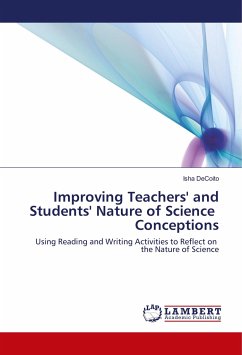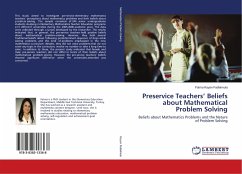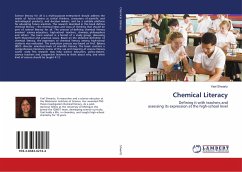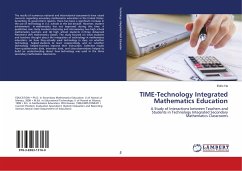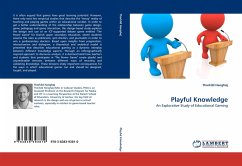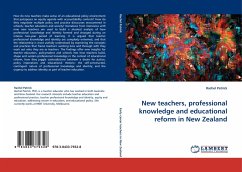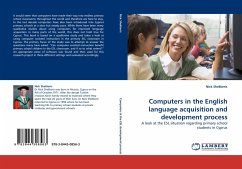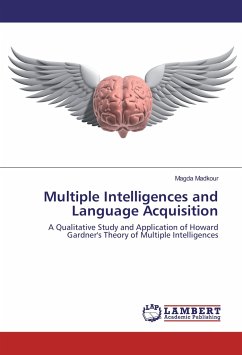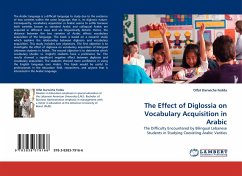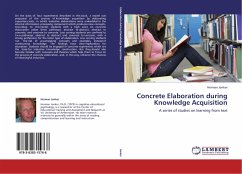
Concrete Elaboration during Knowledge Acquisition
A series of studies on learning from text
Versandkostenfrei!
Versandfertig in 6-10 Tagen
32,99 €
inkl. MwSt.

PAYBACK Punkte
16 °P sammeln!
On the basis of four experiments described in this book, a model was proposed of the process of knowledge acquisition by elaborating expository texts, in which inductive elaborations were embedded in the internal information processing component which produces new concepts. According to this model, students with a high score on concrete elaboration utilize three pathways: abstract to abstract, abstract to concrete, and concrete to concrete. Low scoring students are confined to two pathways: abstract to abstract and concrete to concrete, with a strong preference for the latter type of elaborati...
On the basis of four experiments described in this book, a model was proposed of the process of knowledge acquisition by elaborating expository texts, in which inductive elaborations were embedded in the internal information processing component which produces new concepts. According to this model, students with a high score on concrete elaboration utilize three pathways: abstract to abstract, abstract to concrete, and concrete to concrete. Low scoring students are confined to two pathways: abstract to abstract and concrete to concrete, with a strong preference for the latter type of elaboration. Low scoring students run the risk of accumulating concepts and examples, instead of constructing knowledge. The findings have clear implications for education: students should be engaged in concrete experiences which are the basis for inductive knowledge construction. But they should also become familiar with concepts and theories which help them to focus on the process of concrete elaboration, and, in this way, enhance the chances of meaningful induction.



